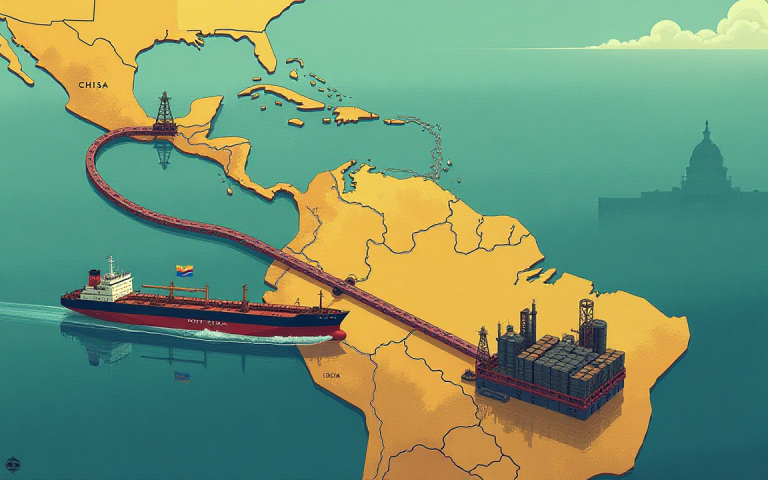According to vessel tracking data and internal company documents, Venezuela’s oil exports dropped around 10% in July from the previous month.
The fall comes when major partners of the state oil company PDVSA are waiting for US government authorisations to increase operations in the country that is under severe sanctions.
Venezuela exported an average of 727,000 barrels per day(bpd) of crude and refined products last month, compared with 807,000 bpd in June.
The nation also exported 227,000 tonnes of byproduct and petrochemical oil, the same amount as June.
According to Reuters, the drop underscores the persistent effects of US sanctions and an extended licensing process on the South American country’s oil industry, among the few remaining places where it generates foreign currency.
As some trade operates under current exemptions, the bulk of the activity is still frozen, waiting for the regulatory decisions from Washington.
Chevron cleared to resume, others left waiting
At the end of July, the US government provided Chevron with a limited license to conduct operations and export Venezuelan crude to the US.
Unsurprisingly, the agreement prohibits any payment to Maduro’s administration, serving as a symbolic gesture of the power struggle between the two countries.
The company plans to resume shipments in a “limited amount” in August, Chevron CEO Mike Wirth said on Friday.
The terms of the authorisation were not disclosed, and Wirth refused to elaborate.
Other PDVSA partners remain in limbo as Chevron prepares to return.
They are still waiting for the US Treasury to issue in-kind authorisations that would allow them to legally engage in oil-related activities without violating sanctions.
PDVSA had treated Chevron’s exports as “suspended” since April, when the Venezuelan firm scrapped scheduled cargoes after failing to settle outstanding bills related to the prior sanction round.
A decisive ruling to revoke the few licenses granted under the Trump administration came in March, redirecting exports from Venezuela toward Asian markets, with China as the primary destination.
Exports shift east, while stocks build at the main terminal
In July, China received over 95% of Venezuela’s oil exports, either directly or indirectly.
The government also maintained supplies to its political ally Cuba, supplying approximately 31,000 barrels per day of crude, gasoline, and jet fuel.
Despite the lower overall volume, oil flows to these critical destinations remained consistent.
Meanwhile, the Jose oil terminal, Venezuela’s principal export hub, saw heavy crude and diluent inventories grow rapidly in the final week of July as the port was practically depleted of outgoing shipments.
The stalemate at Jose highlights the logistical and financial obstacles that continue to plague Venezuela’s oil industry, which has already been pressured by years of underinvestment, sanctions, and operational setbacks.
Chevron negotiates a new off-taking structure
Chevron has also been in discussions with PDVSA to set up a new off-take mechanism after its fresh license was issued.
The company and the oil state firm are negotiating to set up an agreement under which royalties and taxes would be paid in kind, not in cash, local sources said.
For example, Chevron could provide PDVSA with diluents in return for a share of the crude produced together.
Those swaps would allow the company to comply with US embargo laws while generating limited revenue for the increasingly needy Venezuelan oil industry.
Just days after prisoners were exchanged between Washington and Caracas, the approval of the license came when American lawmakers were boasting about the increased amount of Venezuelan oil heading to China.
While it was a minor victory, Washington’s change of course was evident in the resumption of Chevron’s operations, and it comes as the rest of PDVSA’s partners stay out of the picture, leaving the larger Venezuelan oil exports’ buzz cloudy at best.
The post Venezuela’s oil exports drop 10% in July as PDVSA partners await US green light appeared first on Invezz

